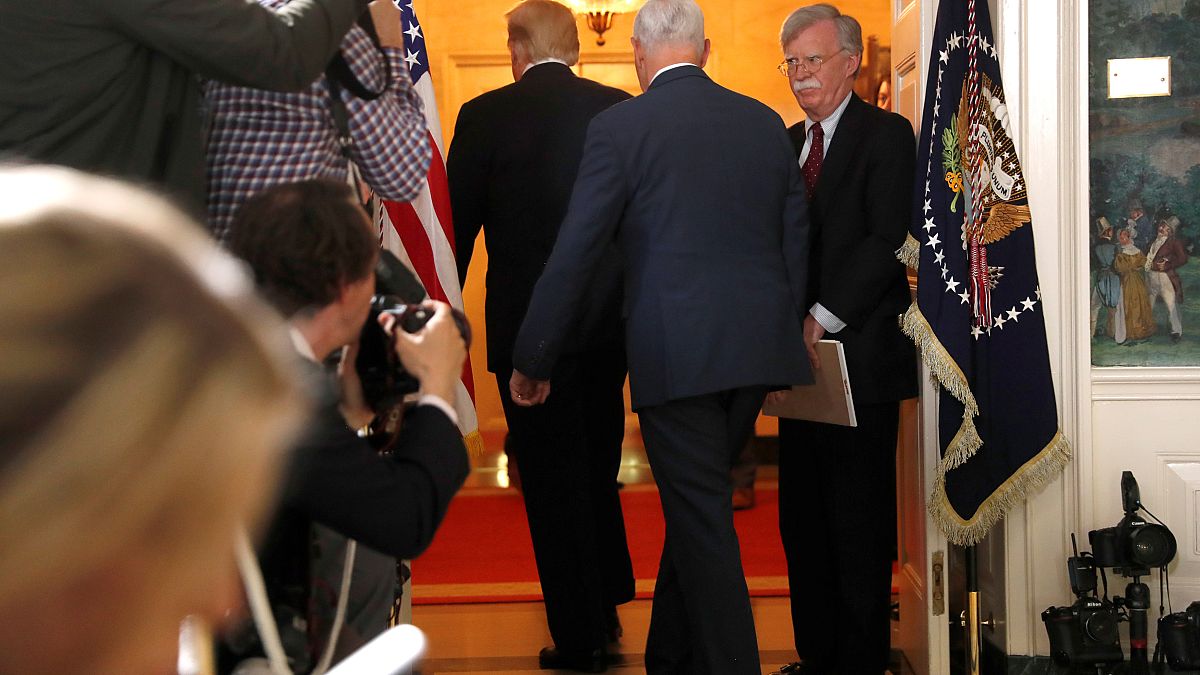The question now is whether withdrawing from the nuclear deal really makes the U.S. (and the world) a safer place.
News Analysis
As he announced the end of the Iran nuclear deal on Tuesday, President Donald Trump told the nation, "When I make promises, I keep them."
And he did, in fact, campaign on a promise to tear up the deal on Day One (though the action actually came on Day 474).
The sense that the president was keeping a promise to his political base was made very clear in a statement quickly issued by the Trump re-election campaign, headlined: "A Promise Kept on the Iran Nuclear Deal."
The question now for America and the world is: Was it a smart promise in the first place?
The fundamental issue raised by many military and diplomatic experts is whether withdrawing from the deal makes the U.S. any safer, and whether whatever perceived advantage of seeming "tough" with adversaries is worth incurring the wrath of allies.
France's Emmanuel Macron, Germany's Angela Merkel and Britain's Theresa May had pleaded with the president to give them leeway to address his concerns in a "side deal," a new negotiation to limit Iran's missiles, extend the term of the original Iran deal, and confront Iran's support for terrorism. That was already a significant shift from their original refusal to consider any new negotiation after the painfully constructed six-party nuclear agreement.
That he refused to even nod in their direction, saying he was instituting "the highest level of economic sanction," was a further rebuff to Europe.
Former President Barack Obama, calling the decision "misguided," pointed out in a statement that Defense Secretary James Mattis is among the experts who believe the Iran deal was working. Obama wrote that debates in our country "should be informed by facts," and proceeded to point out that the agreement he negotiated has indeed rolled back Iran's nuclear program, has the most far-reaching verification and inspection ever negotiated in an arms control deal, and was never intended to deal with all of the problems Iran presents to its neighbors and the world.
But it is clear that Trump is now more comfortably surrounded by like-minded advisers, chiefly National Security Adviser John Bolton and Secretary of State Mike Pompeo — even though at his recent confirmation hearing, then-CIA Director Pompeo acknowledged Iran has been complying with the nuclear deal. And tonight, the chairman of the Senate Foreign Relations Committee, Bob Corker, R-Tenn., is still appealing to the president not to implement all of the sanctions.
The President and his Middle East allies, chiefly Saudi Arabia and Israel, clearly believe that with Iran's economy teetering, cutting off its economic lifeline will eventually topple the regime. They are also betting that Tehran is too afraid of a U.S./Israeli joint military strike to resume covert nuclear activity.
They may be right. But it is just as plausible that by violating a UN Security Council resolution, the Trump White House has created an irreparable breach with Europe over Iran, and will find little support in the Security Council for any military action in the region.
More than any previous Trump decision — including opting out of the Paris climate accords and the Trans-Pacific Partnership trade deal with Asia — withdrawal from the Iran nuclear deal will forever define Donald Trump's foreign policy, and may well complicate his ambitious goals in North Korea.
